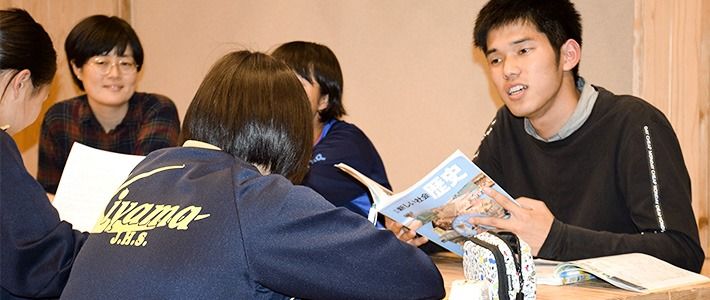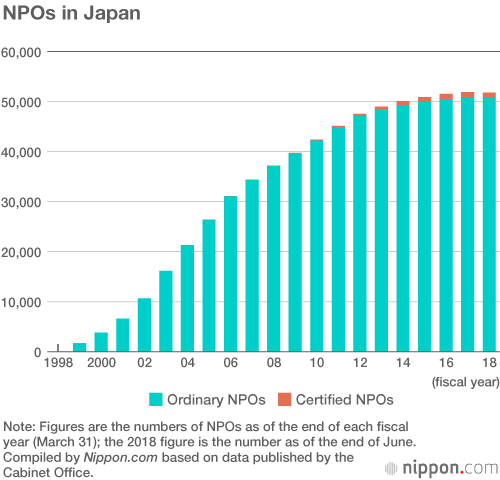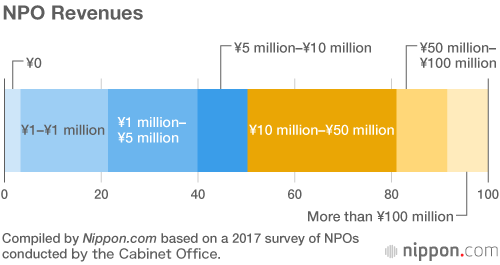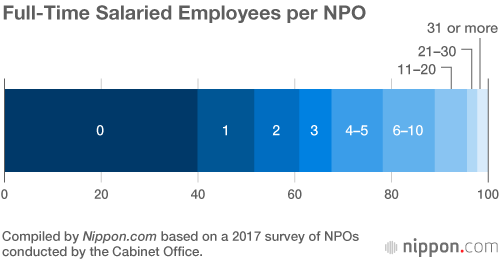
Revenue an Issue for Many Organizations as NPO Law Reaches Twentieth Year
Society- English
- 日本語
- 简体字
- 繁體字
- Français
- Español
- العربية
- Русский
It will soon be 20 years since the Act on Promotion of Specified Nonprofit Activities, known as the NPO Act, was implemented to promote the development of private organizations engaged in social contribution activities on a nonprofit basis. According to statistics collected by the Cabinet Office, the number of NPOs stood at 51,774 as of the end of June 2018, and their presence in society continues to grow.

The NPO Law came about as a result of the Great Hanshin earthquake that occurred on January 17, 1995. Although the government advised differently, approximately 1 million people went to the disaster area as volunteers and carried out relief efforts. This is said to have been the start of widespread volunteering for social causes in Japan. This upsurge in civic activity prompted the government to establish a Diet member’s bill in March 1998. Up until then, citizen groups were not incorporated so it was difficult for them to rent real estate or open a bank account. However, acquiring legal status meant they could then engage in a wider range of activities and they received greater recognition from society. In October 2001, an NPO certification system was introduced to accredit NPOs operating in the public interest that met certain criteria. Preferential treatment, such as tax-deductibility for donations, is given to these certified groups.
While NPOs do not aim to make a profit, they are allowed to raise revenue through their activities and use that money toward the cost of their future projects. When the long-term care insurance system started in April 2000, many NPOs joined as legal entities. From 2010 onward, an increasing number of people known as social entrepreneurs have been establishing NPOs with the aim of solving social issues through business ideas.
Recently, the spread of social media has been transforming NPOs. It has broadened their reach, allowing the groups to keep connected with sponsors and contributors through online communities, quickly call for volunteers in times of disaster, and promptly reach the affected areas, as well as to crowdfund capital for their projects and events.
However, a 2017 survey conducted by the Cabinet Office, which fielded responses from 3,471 out of 6,437 NPOs, revealed that more than half of the groups had annual revenues of less than ¥10 million and 40% had no full-time salaried employees. It is a fact that many NPOs do not have enough revenue to properly conduct activities. Even though 47% of NPOs received no donations at all and 17.7% received donations that did not clear the ¥100,000 mark, 52% of NPOs answered that they had no special donation programs in place. Cultivating a donation culture will need to be addressed in the future.


The Dormant Deposit Utilization Act was passed in 2016, allowing use of money in dormant bank accounts for NPO activities. Beginning in autumn 2019, dormant deposits in accounts that have not been active for more than 10 years will be made available for aiding and financing public-interest activities. It is estimated that ¥70 billion in dormant deposits will become available every year.
(Translated from Japanese. Banner photo: Children affected by the 2016 Kumamoto earthquakes receive study advice from a student staff member of NPO Katariba. © Jiji.)